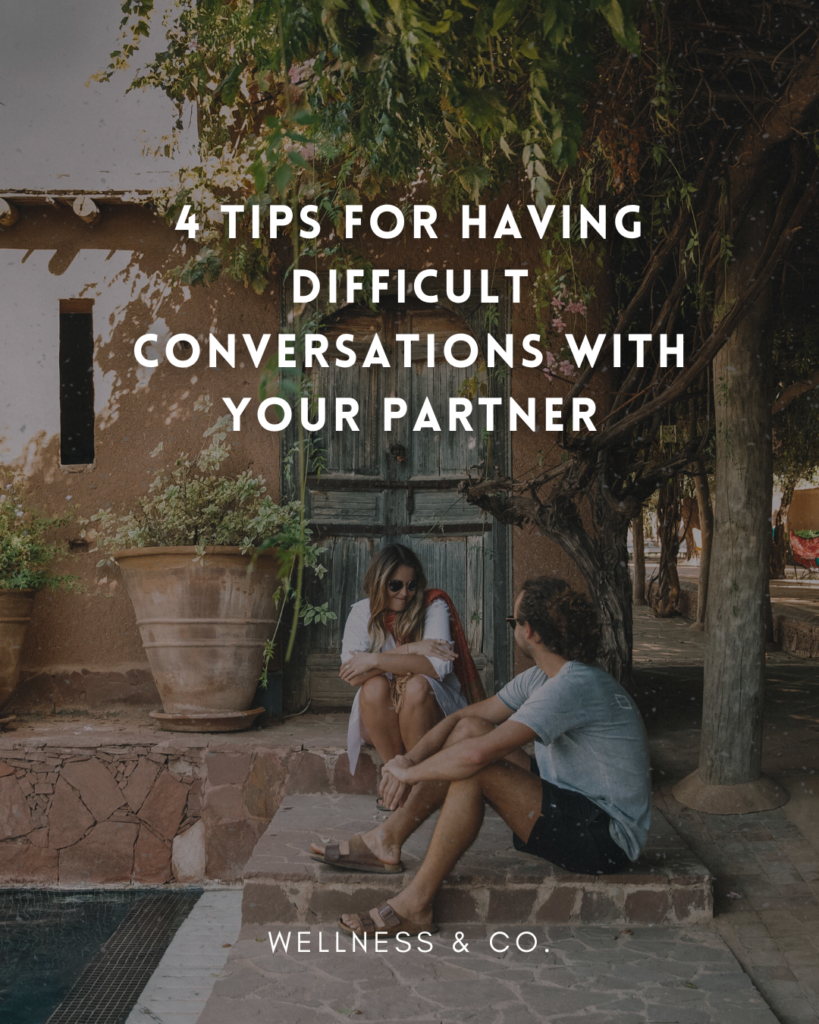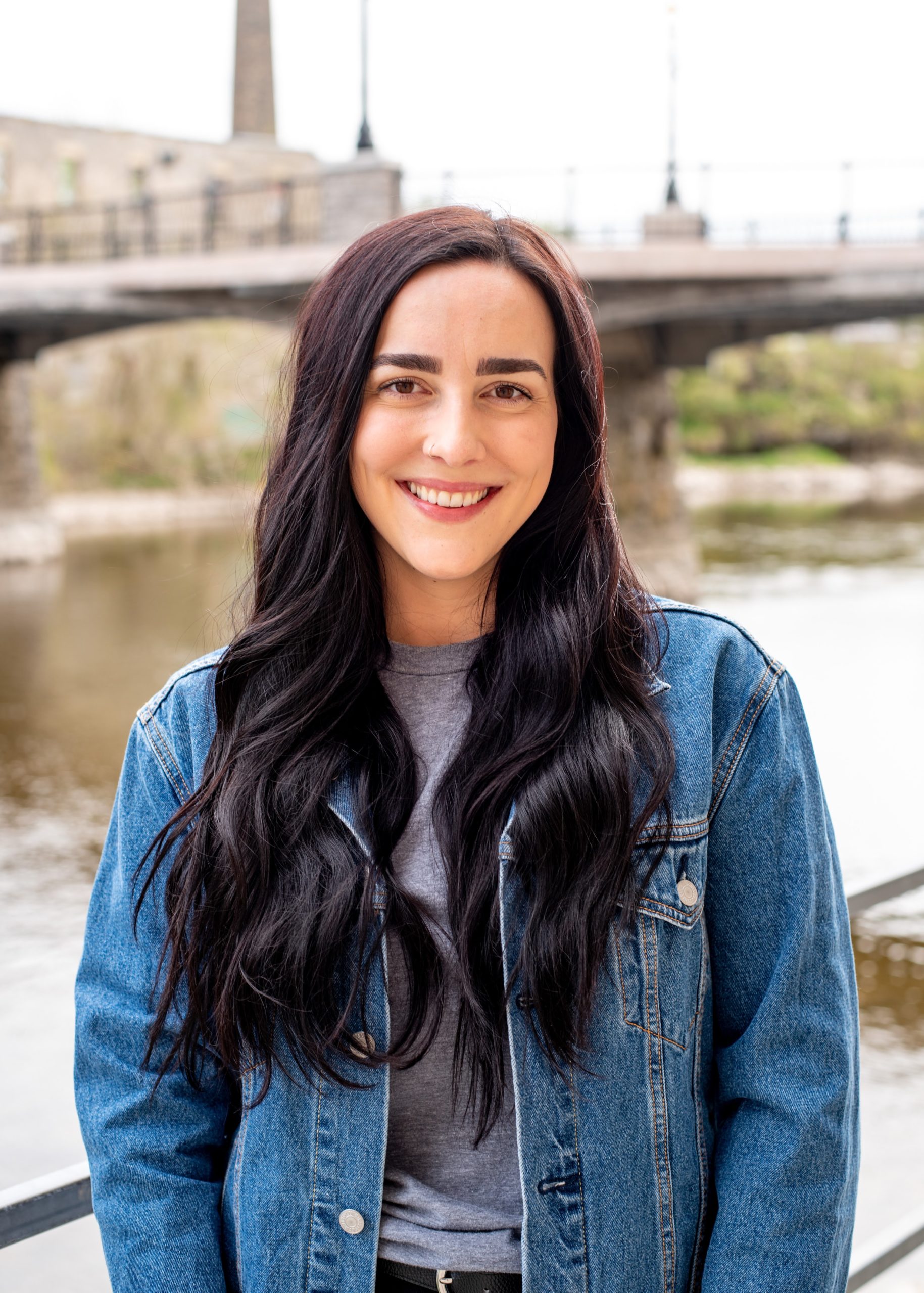Follow
Wellness & Co.
Hi, I'm Dr. K, Wellness & Co. is a growing therapy/coaching practice and educational hub for prospective clients based in Maryland and virtual clients all over the world!
Hi, I'm Dr. K
free guide
e -books
e -course
4 Tips For Having Difficult Conversations With Your Partner
February 21, 2023
By Amanda Clegg, Relationship Coach

We can have so much resistance to talkin’ about the tough stuff in our relationships, but as Life Coach/Author/Podcaster Jay Shetty says, “Two humans coming together will naturally have disagreements, disappointments, discussions, and debates. If we live in a world of ‘oh, we never argue’ or ‘everything is all peaceful’, I wonder, what are you struggling to say? What are you uncomfortable raising? And actually, if you want to live with someone for a long time, you’ve got to get really comfortable with uncomfortable conversations.”
These types of conversations are necessary for the evolution of our partnerships. It’s important to understand that their goal is ALWAYS to bring you closer together after. Yet, for some reason, we often feel more stressed, and more misunderstood, and more disconnected. But not anymore! Check out my top 4 tips for having difficult conversations below.
It’s time to learn how to communicate, the conscious way.

Tip #1
Choose the Right Time – having difficult conversations requires our full attention. If we’re on the go, busy with the kids, in the middle of work, or are distracted in any way, we’re setting ourselves up for failure. Make sure you create a space where you can be fully immersed in the conversation. (Oh, and pro tip: make sure you’re not hungry! Seriously…)
Tip #2
Use ‘I’ Statements – starting off with ‘You’ language can immediately cause our partner to put up their defenses. The goal with these talks is always to be heard and held in love, which is really hard to do if we’re feeling attacked. Share how you’re feeling, what your need/desire is, and what kind of support you are looking for. (Are you looking for solutions, space, or just to share?)
Tip #3
Focus on the Problem – it’s you two vs. the issue, not vs. each other. Put it out in front of you and process it through that lens. Let go of the need to be right (both of you!), give each other the space to speak, and listen to understand. (You may need to practice some deep breathing here in order to maintain a posture of curiosity and compassion!)
Tip #4
Validate their Feelings – I cannot stress this one enough. To be clear, validation does not mean that you agree, but it does mean that you see them in their experience and can understand their perspective. This is where empathy comes in – Are you able to feel with them? Can you connect to a time in your own life when you may have felt something similar? Can you look at their emotions through their lens and sink into what it must be like? When we’re validated, it immediately calms our nervous system – it makes us feel seen, safe, and supported. (Examples could be: I hear you, it makes sense why you’d feel that way, I’m here, I’d feel that way too, I appreciate you sharing this with me, how can I support you, what do you need from me, is there anything else you’d like me to understand…)
Whew, OK, we made it through! Look at us go! As I was writing this, I was reflecting on my own partnership and how he and I work through the tough stuff, which made me want to add jussssst one more thing – we *always* wrap up with physical connection of some sort. Hugs, kisses, cuddles, or whatever else you fancy, are all fantastic ways to come back together…stronger, happier, and closer than before.
And remember – progress not perfection, pals.
Big love,
Do you have a hard time with the difficult conversations in your relationship? Would you like support in learning how to embody these tips so you can have more productive and connective communication?
Schedule a free 15-minute consult with Amanda here!
Amanda works with couples and individuals who want to build secure, connected relationships – both within themselves and with the people they love. Using the Enneagram as a powerful framework for awareness and growth, she helps clients understand their patterns, soften reactivity, and create new ways of relating rooted in compassion and emotional safety.
Leave a Reply Cancel reply
CONTACT
Start Here
BLOG
OUR TEAM
SHOP
ABOUT
©2025 Wellness & Co. | All Rights Reserved | Design by EverMint Design Studio
BACK TO TOP
connect with us on instagram
